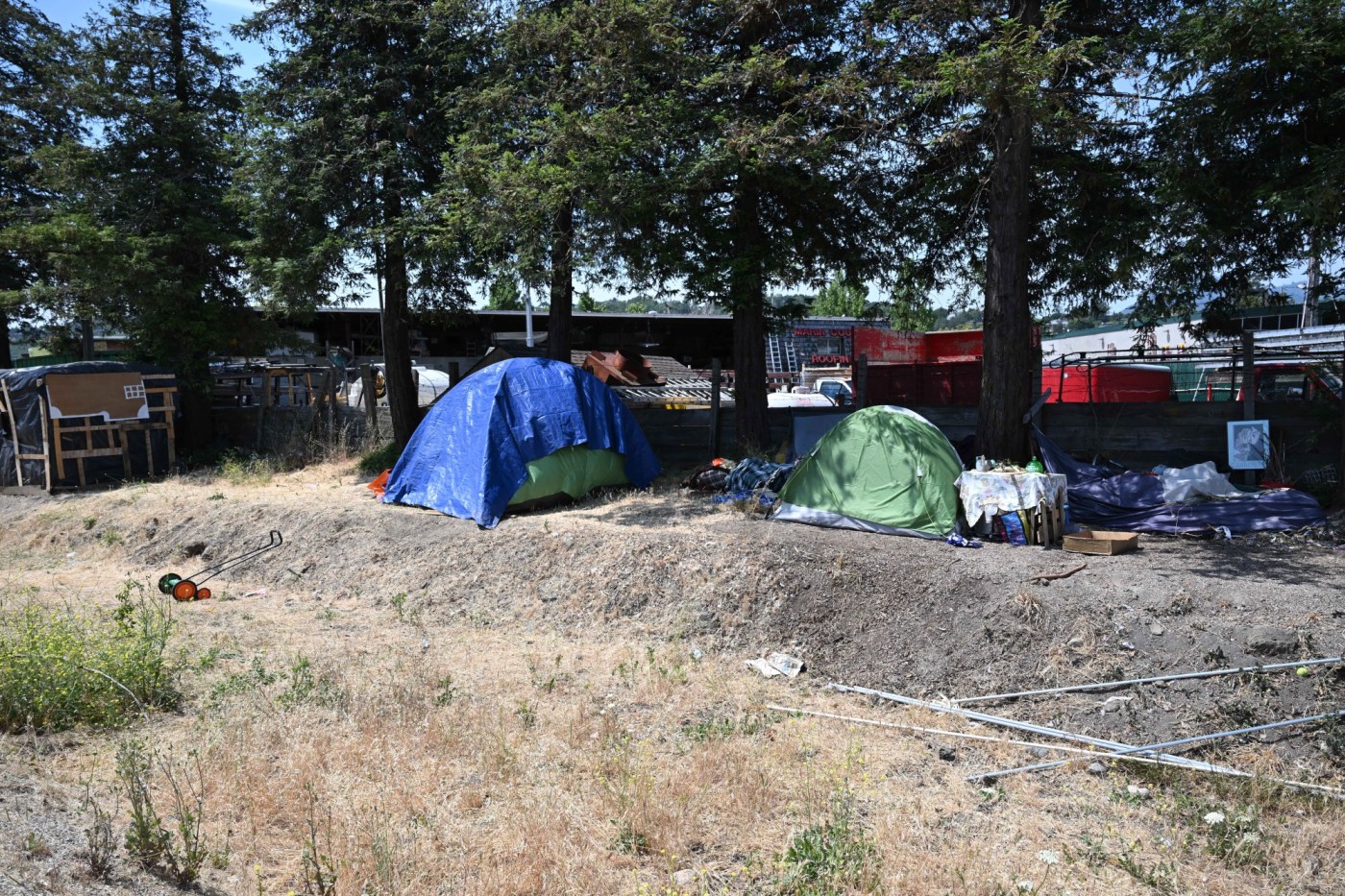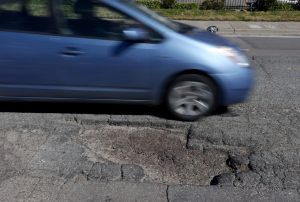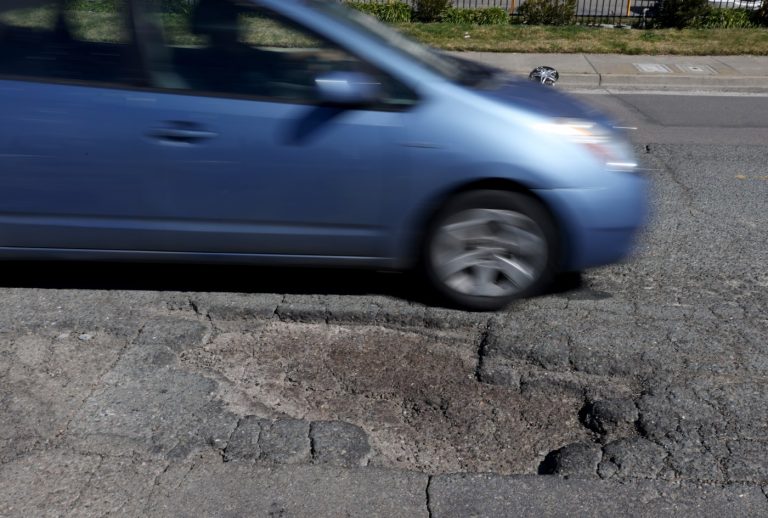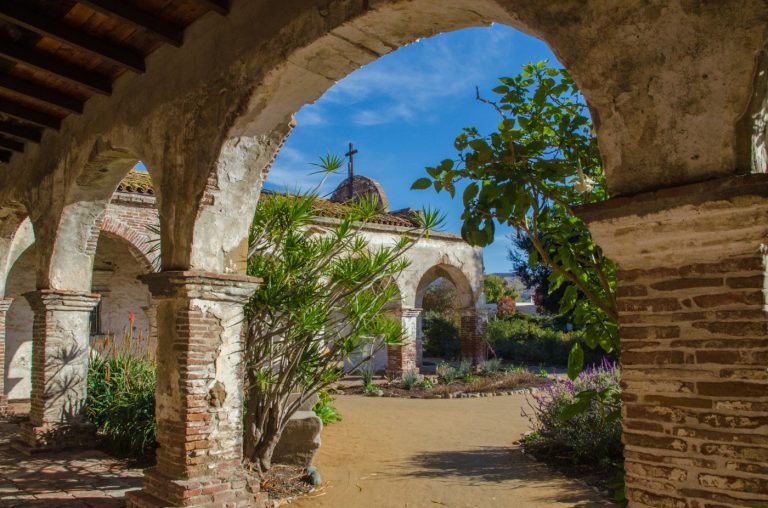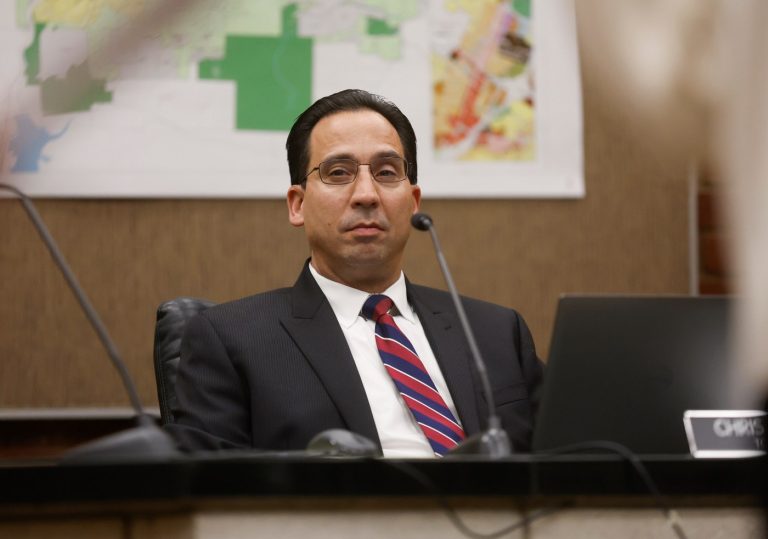San Rafael is free to enforce its regulations on homeless campers following a federal court ruling Thursday that ended a year of litigation.
The issue stemmed from a city ordinance approved in July 2023 that aimed to curb a trend of violence, crime and littering associated with large encampments, city officials said. The lawsuit, filed a month later by a group of homeless residents of the Mahon Creek Path camp, challenged the restrictions on the size and location of camps.
Plaintiffs argued that breaking up camps exposed the most vulnerable among them to higher health and safety risks. They said the ordinance violated statutory and constitutional rights.
In April, the City Council voted to revise the law in response to a court order requiring the rules to be relaxed to alleviate the concerns of the plaintiffs and the judge. In his order Thursday, U.S. District Judge Edward Chen wrote that “the case is now moot, and thus the Court no longer has jurisdiction to maintain the preliminary injunction.”
“The amended ordinance allows for clustering of individuals and campsites in a manner which mitigates the dangers potentially facing isolated unhoused individuals,” Chen wrote.
Furthermore, Chen wrote, “only individuals who willfully violate the ordinance can be charged. This addresses the due process concerns identified by the Court. And there is no showing that the amended ordinance negates the rights of individuals with disabilities access to reasonable accommodations.”
Over the past year, the Mahon Creek Path camp, which the occupants call “Camp Integrity,” has grown from about 33 tents to 67.
The city’s updated ordinance is now in full effect. Campsites can be up to 200 square feet for a single person and up to 400 square feet for up to four people living together, which doubles what was allowed under the previous ordinance.
The ordinance prohibits camping within 250 feet of schools and within 100 feet of playgrounds. Camps must be 10 feet from other camps, public utility infrastructure and private property.
City officials said the regulations will be enforced through “written warnings and fair notice.”
Camping was already banned in open spaces, city parking garages and public rights of way such as sidewalks, and at Boyd Park and Albert Park.
“I am grateful that the City can bring a close to this chapter,” Mayor Kate Colin said in a statement. “For nearly a year, this lawsuit has frustrated our community and diverted limited City resources away from compassionate and effective solutions for our unhoused community.”
Anthony Prince, a California Homeless Union attorney, said he would have preferred Chen to deny the city’s motion to dismiss the case.
“With that said, overall there is no question that this entire battle has been a total victory for the residents there at Mahon Creek,” Prince said.
Prince said Chen recognized their claim had legal basis under the Americans With Disabilities Act, as it relates to the 14th Amendment’s state-created-danger doctrine and due process rights. Chen’s order says: “Defendant is aware those issues would remain at play were it to reenact the former ordinance.”
“The judge’s order is a restraint on the city if they dare to attempt to go backwards on their regulations,” Prince said.
Prince said the members of the union, which has a San Rafael chapter, remain skeptical of how local governments will act in light of the executive order from Gov. Gavin Newsom last month compelling state agencies to remove camps of homeless people and urging cities to do the same.
Newsom’s order came a month after a U.S. Supreme Court ruling empowered officials to enforce bans on sleeping in public spaces.
“All these cities are going to be taking it as a green light to make changes and institute more repressive measures,” Prince said. “We don’t trust the city.”
Robbie Powelson, a representative of the union, agreed.
“To obtain this order, the city represented to the court that there are ample places for unhoused people to lawfully reside in San Rafael and that the city would not reinstate their defeated anti-camping ordinance,” Powelson said. “I disagree with the court’s optimistic view that the city will keep its promises.”
The lawsuit, costing the city about $500,000 in legal fees, is one of five against the city’s response to the homeless crisis since 2021.
Advocates and homeless residents sued the city over the city-sanctioned encampment called the “service support area,” or SSA, that was opened on a commuter lot under Highway 101.
The city was sued again when Caltrans closed the camp. The city was also sued for prohibiting camping at Albert Park and the Menzies parking lot.
Now city officials are continuing code enforcement cases against several people who had illegal structures posing safety risks at their sites. Officials have abated 40 illegal structures and removed more than 30 tons of material from camps in the last few months.
City officials sought a court order to remove an additional nine structures after residents failed to comply with a notice to dismantle them by July 31, said John Stefanski, assistant city manager. An administrative hearing is set for Aug. 20.
Meanwhile, city officials are preparing a comprehensive update on the homelessness response to be presented to the City Council on Aug. 19.
At that time, staff expect to discuss a proposed program for a sanctioned camping area along the northern portion of the Mahon Creek Path, an effort supported by a $5.99 million state grant. The staff is also expected to present updated regulations in light of the Supreme Court ruling, Stefanski said.
Stefanski said staff are still working on a proposal and declined to elaborate on how regulations could change. More will be disclosed in the next week or two.
Colin said she looks forward “working with the county, nonprofits, local businesses and unhoused individuals to resolve encampments in an empathetic yet successful way that will get folks into permanent supportive housing.”
